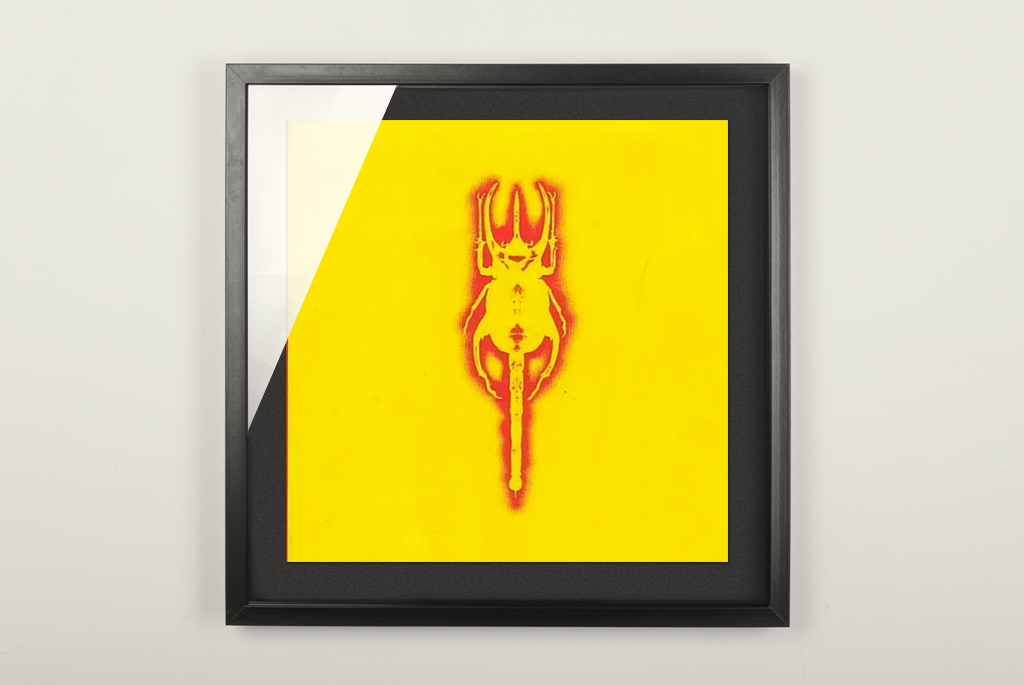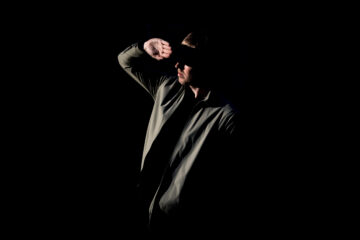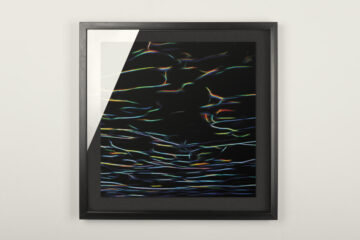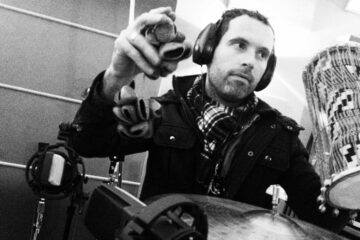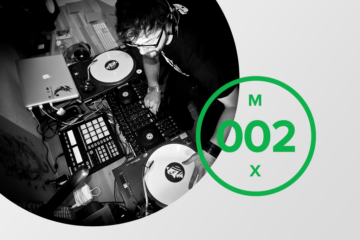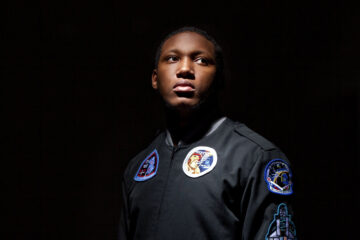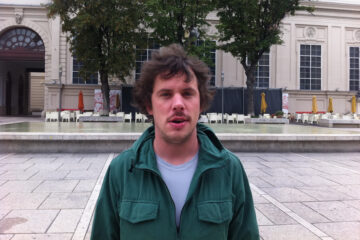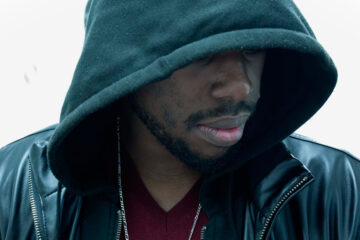Smoke. Everywhere. Entire avalanches stream towards me, are chopped up in a thunderstorm of light. The ceiling hangs low over shadowy bobbing heads. Rastas fly by every second like snakes of mist. A hippie stumbles into the constricted fog window of strobo outbursts as a slow-motion alien. Skin colors blur. The air trembles under bawling frequencies. A frantic, raspy voice cuts through the thicket.
»What type of strategy? What terminilogy?
Dem a politician wid a new psychology
Invade your island, capture your country
Fuck ‘em up plenty
Seems like we livin’ in a mental slavery
When di paedophile haffi rape all mi pickney«
(»Politicians and Paedophiles« by The Bug ft. Daddy Freddy)
And everything is permeated by bass. Unyielding, uncompromising, brutal. From all sides it presses on the senses, compresses and atomizes fog and bodies. As if the confined space rattlingly breathes. Collapsing in great, buzzing gusts. Something inside me slips.
More Punk then Jungle
For Kevin Martin, aka The Bug, this was the state of happiness. And his album »Pressure«, released in 2003 on the braindance label Rephlex, was an attempt to replicate this state and extend it into the living room. He wanted to bring back to life what he had experienced in London’s Dub clubs and Ragga nights in the 1990s. »For me soundsystem culture in Britain and in London especially has been very influential«, he told me in an interview for Goon Magazine. »Just going to Dub dances and basically being enveloped in sound. Having so much sound that you feel totally overwhelmed. You feel like your whole internal organs have been re-arranged. The music bypasses the intellect. It appeals to you in a very fundamental, primitive way.«
Therefore, when The Bug played a live set, it was about complete disorientation in claustrophobically small clubs whose walls were covered with bass bins. Although »Pressure« was released in 2003, The Bug did not follow the then-emerging sound of Grime and Dubstep, which had followed the Jungle footsteps. His reference points were Punk, Reggae and Ragga. Accordingly, there are fewer sub-basses rolling through the grooves of his album than a buzzing, bone-dry hurricane of sound drowned in distortion. The basses don’t reverberate in subspace. They box bodies blue. Instead of syncopated beats at 140 bpm, they punch faces between 90 and 110 bpm.
»Über all dem konnte es um Politik gehen. Es konnte meine gesamten Ansichten in Frage stellen – über meine Eltern, soziale Strukturen, warum ich Musik höre und was ich damit anfangen kann. Und gleichzeitig konnte es einfach Entertainment sein.«
The Bug
Kevin Martin took the taste for noise with him from his first musical love: Punk. »Groups like Discharge and Krass changed my whole perception of what music is about. It doesn’t have to be that melody and harmony. It can be about antagonism and atonality, noise, energy, excitement.« Consequently, his first project between 1991 and 1995 was God, a 12-piece ensemble between Free Jazz, Noise Rock and screaming.
However, Punk – and at the same breath, because the airspace was not far at that time, Reggae as well – also showed Martin that between all the sound that crushes the intellect, meaningful things can happen after all. »It could have social context. It might be politics involved, it might be questioning my whole outlook on my parents, social structures, the why I am listening to music and what you can do about it, or entertainment.« For Martin, Ragga was a logic progression on these common roots. The music in all its rawness built a platform for the lyrical and the political. »Reggae intrinsically has a political message. There was a politics to the sound, there was a politics to the message. MCs like Capleton or Sizzler address inequalities and society. They can do that and they can be totally slag on the same album, almost alternate in track after track.«
The message within chaos
These extremes drove Martin to Ragga. On the one hand to party and on the other hand to revolt against the environment, the powerlessness as a human being or culture living with Caribbean roots in England or Jamaica. Fully aware that as a white man from the white, conservative south coast of England, he couldn’t do that part, he left the lyrical element to those who knew what they were talking about. In 2003 Martin lived in Alperton, one of the poorest and most diverse parts of London at the time, and thus perceived the poverty and racism of white England every day. However, he did not have to live through this hopelessness himself.
»My way of reflecting it is through sound. It’s my chosen tool«. A tool that provides a platform for those without a voice in England’s society. Who speak of themselves instead of just reflecting others. And so it is Daddy Freddy, Toastie Taylor, Roger Robinson, Paul St. Hilaire (as Tikiman), Singing Bird, Wayne Lonesome and He-man who drop their stories between party and revolt into the sound chaos. Dismantling England’s colonization, denouncing double standards and simply acting silly in between. The unifying element remains intensity at its maximum. The vision to shake up, to celebrate and to disorient.

